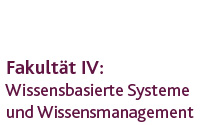MS@CPS

MS@CPS
Master of Science on Cyber Physical Systems (MS@CPS)
- Categorie: Erasmus+
- Duration: 2019-2022
- Funded
by Erasmus+
- Project
webpage: https://blogs.uni-siegen.de/ms-cps/
Establishing an International Master of Science on Cyber Physical Systems
With the widespread proliferation in various technologies, such as the Internet of Things (IoT), autonomous cars, smart phones, embedded systems, cloud computing and big data, 5th Generation Internet, etc., the integration between software and hardware becomes very crucial to have reliable, secure, flexible systems. Despite the fact that software and hardware work in two different layers and domains, both components should be optimized to consider the characteristics and limitations of each other. Cyber physical systems (CPS) is a new multidisciplinary subject that tackles the integration process between the various software and hardware technologies, while maintaining a user friendly and secure human computer environment.
The International Master of Science on Cyber Physical Systems (MS@CPS) provides a specialized and unified view of the industry-oriented research field, aiming to prepare the students to be highly skilled analysers, designers and developers of both the software and hardware aspects for various industry related systems and applications in the context of CPS.
This master program mainly targets two main tracks, whose interlinking provides the fundament for CPS: Embedded Systems (ES) and Knowledge-based Systems (KBS) with new challenges as with mobile, smart, distributed and ubiquitous computing, cloud and semantic computing, advanced analytic, big data, anything as a service solution incorporating next generation devices and connectivity.
By enrolling in this program, the students will interact with people from several distinct countries, with diverse cultural backgrounds to promote globalization and technological development based on students' choices and expectations. Moreover, students' mobility and the European Credit Transfer and Accumulation System (ECTS) enables them to adapt to different cultural environments, experience distinct teaching methodologies and qualify for mutually beneficial opportunities. The multi-cultural experience and contact with different teaching styles can respond to labor market needs, foster innovation and create top talents as the mobility readiness and complex system solution handling is a valued skill for companies.
The consortium is composed of three European Universities (University of Hertfordshire, United Kingdom; the University of Siegen, Germany; Royal Institute of Technology, Sweden) and six Middle- Eastern Universities (German Jordanian University and Tafila Technical University, Jordan; University of Sfax and University of Carthage, Tunisia; Palestine Technical College and Al-Quds University, Palestine). It is coordinated by the University of Siegen, Germany. Jointly, in a strategic sustainable partnership, we will implement the MS@CPS anchored in the development of an international curriculum, delivering content in new adaptiveness to the students and the markets, and ensuring complementarity with broader national policies.
Project Publications:
I. Ishaq, R. Jayousi, S. Odeh, E. Edwan, A. Shaheen,
M. Elnaggar, A. Elagha, S. Salamah, C. Weber, H. A.
Rasheed, R. Kirner, M. Doolan, H. Ahmadian, R. Obermaisser,
D. el Diehn, A. Khalifeh, S. Alouneh, Z. Alhalhouli, K.
Alemerien, F. Gargouri, B. Bouaziz, N. A., M. Saleh
Work in Progress – Establishing a Master Program in
Cyber Physical Systems: Basic Findings and Future
Perspectives
In 2019 International Conference on Promising Electronic
Technologies (ICPET), Gaza City, Palestine, pp. 4-9, 2019.
Kontakt
Christian Weber, christian.weber{at}uni-siegen.de

